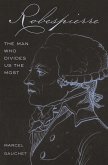England trembled in 1792. In May, George III issued a proclamation warning his subjects of "diverse wicked and seditious writings" then being circulated which might "excite tumult and disorder." The response to this proclamation - an unprecedented expression of loyalty to crown and constitution - marked the beginnings of a movement that was to influence British political life well into the nineteenth century. For King, Constitution, and Country is the first full-scale exploration of the nature and origins of this loyalist movement. The British government had genuine cause for concern. While France was convulsed by revolution across the Channel, the writings of Tom Paine and the actions of organized English radicals seemed designed to import that revolution to England. The formation of loyal associations throughout the country indicated that the overwhelming majority of Englishmen opposed such aims, and their public declarations of loyalty strengthened the hand of government in suppressing dissent, real or imagined. When war with France was declared in 1793, the loyalists, already organized, continued to provide social stability, as well as money and men - the volunteer corps - to defend their country.Until now historians have concentrated on the radical side of this struggle. Robert R. Dozier's detailed study - based on sources as diverse as the private papers of government officials, provincial newspapers, and the declarations of radical and loyal societies throughout England - now makes possible a balanced view of this chaotic period. Mr. Dozier shows that the English loyalists rejected the French Revolution on social as well as political grounds, and argues persuasively that their words and actions enabled England to escape the legacy of revolution that was to plague the Continent throughout the following century.This important book reveals much about the character of the English people, the structure of English political society, the nature of England's unwritten constitution, and the breadth of English liberties.
Bitte wählen Sie Ihr Anliegen aus.
Rechnungen
Retourenschein anfordern
Bestellstatus
Storno








